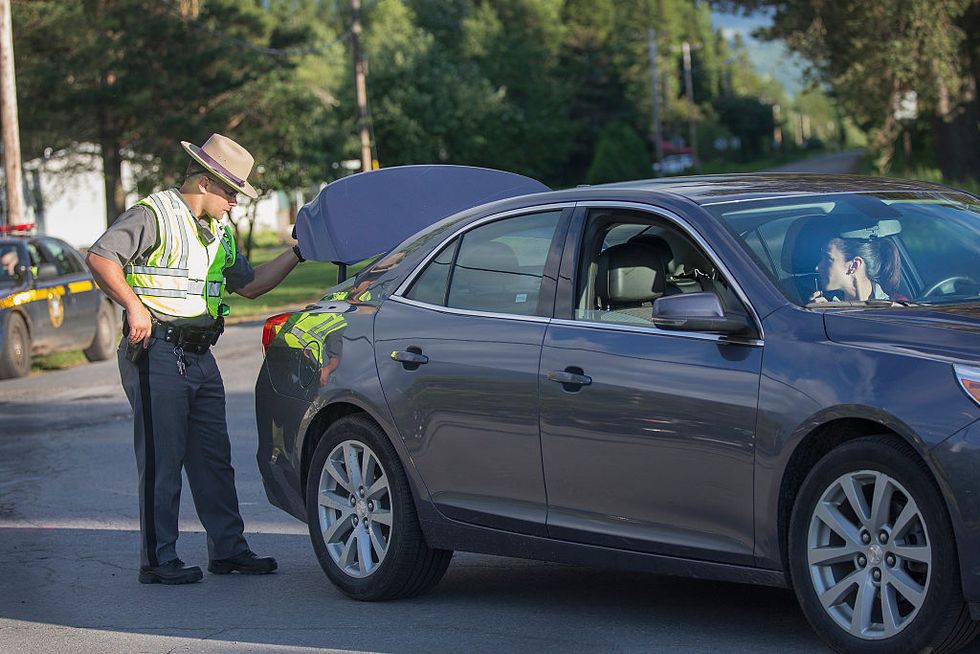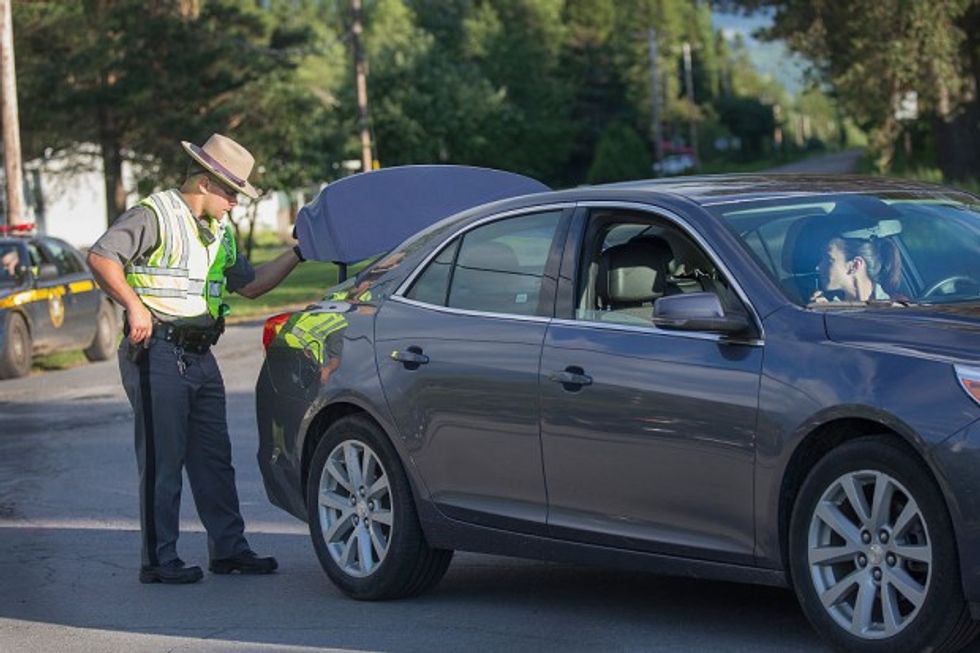
(Getty Images/Scott Olson)

Black men who run from police may have a legitimate reason to do, according to the Massachusetts Supreme Court, which ruled that under certain circumstances, a fleeing black man shouldn't be deemed suspicious.
The ruling, handed down Tuesday, centered on the "Terry stop" — a legal, temporary detention of an individual whom police reasonably believe may be involved in criminal activity — of Jimmy Warren in 2011.

More from the Daily Caller:
In this case, a black male named Jimmy Warren was arrested in 2011 by Boston cops investigating a burglary on Hutchings Street near Franklin Park. The officers conducted a search of the Roxbury neighborhood near the crime scene with a vague and nonspecific description of the suspects — one was wearing dark clothing, one was wearing a black hoodie, and the other a red hoodie. Warren and an associate, both of whom who were wearing dark clothing, were approached by police and stopped in connection with their investigation of the burglary. Both men fled.When apprehended by authorities shortly thereafter, police did not find any contraband on his person, but found an unlicensed .22 caliber firearm in an adjacent yard. Warren was arrested and convicted of unlawful possession of a gun.
Following his arrest in 2011, Warren attempted to get his case thrown out, arguing that his stop and subsequent search was unlawful because police lacked reasonable suspicion.
The state, on the other hand, argued that because Warren fled from police, that proved the officers had reasonable suspicion to stop him. The court, however, disagreed.
According to WBUR-FM, the court had two major findings in the case: First, police didn't have the legal right to stop Warren to begin with. Second, though Warren fled when confronted by police, it doesn't necessarily mean it should be used against him.
The court didn't deny the fact that fleeing from the police is reasonably suspicious. It did, however, find that, in cities like Boston where systematic racism has been deemed to exist, black males do have good reason to flee police.
"We do not eliminate flight as a factor in the reasonable suspicion analysis whenever a black male is the subject of an investigatory stop. However, in such circumstances, flight is not necessarily probative of a suspect’s state of mind or consciousness of guilt," the court wrote. "Rather, the finding that black males in Boston are disproportionately and repeatedly targeted for FIO encounters suggests a reason for flight totally unrelated to consciousness of guilt."
"Such an individual, when approached by the police, might just as easily be motivated by the desire to avoid the recurring indignity of being racially profiled as by the desire to hide criminal activity," it went on to say. "Given this reality for black males in the city of Boston, a judge should, in appropriate cases, consider the report’s findings in weighing flight as a factor in the reasonable suspicion calculus."
[sharequote align="center"]"[F]light is not necessarily probative of a suspect’s state of mind or consciousness of guilt."[/sharequote]
In its opinion, the court cited data from a 2014 report from the ACLU of Massachusetts, which found that blacks were disproportionally stopped in the city of Boston, in addition to data from the police department itself.
The ACLU celebrated the court's decision, while Boston Police Commissioner Bill Evans pushed back against it, saying he was "disappointed" the court "relied heavily" on the ACLU's report.
"I think they relied heavily on an ACLU report that I think was clearly way out of context," Evans said, according to WBUR. "I’m a little disappointed that they relied heavily on a report that didn’t take into context who was stopped and why. That report clearly shows that we were targeting the individuals that were driving violence in the city and the hot spots."
—
Follow the author of this story on Twitter and Facebook:
[facebook //www.facebook.com/plugins/like.php?href=